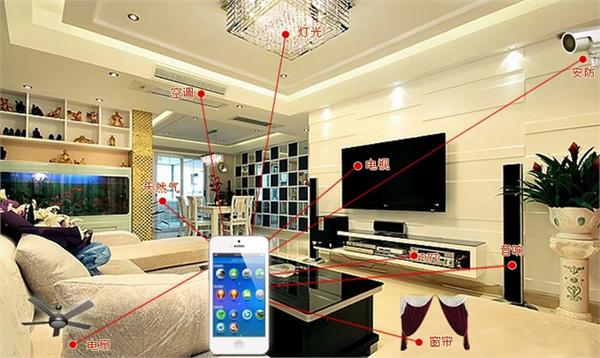
Two years ago, international technology giants dabbled in smart homes, and many people thought that the wind of smart homes began. At the time, Apple released HomeKit, Samsung won SmartTings, and Google bought Nest for $3.2 billion. In 2014, it was also considered to be the first year of smart home.
The domestic Internet giant is unwilling to lag behind. In this year, Alibaba Cloud launched a family eco-chain system for the smart home field. Tencent launched the intelligent hardware development platform QQ IoT, Baidu launched the smart home software platform Baidu family, and Jingdong launched the “Jingdong+ Planâ€.
However, what is embarrassing is that, so far, there has not been a truly subversive product, mostly staying on the surface intelligence or one-sided intelligence. As a result, smart homes are particularly quiet this year. In addition to a few days ago, the United States joined forces with Ali to release a smart refrigerator, which set off a small wave, and other things are lacking.
The main reason for smart homes is that they are difficult to land. The main reason is that enterprises and consumers are not sure where the demand is. What kind of equipment and functions are needed? The two sides still cross the river by feeling the stones and constantly try to make mistakes.
On the other hand, smart home products are tens of thousands, and the cost of trial and error is prohibitive. Enterprises can't get proper feedback, and it is even more difficult to make appropriate adjustments and explorations.
Therefore, the entrance and center of smart homes are still discussed in the past two years, and now they are returning to polishing the single items, and how to extend and develop is unknown.
In general, the smart home market is still in its infancy, and there is still a big gap compared with the smart home market in developed countries such as the United States. There is still a long way to go in the future.
In the next few years, perhaps it is the market for smart homes, and now it is only a temptation. So until today, there has not been a leading brand in the smart home field, market standards are not uniform, and industry concentration is poor.
But it is undeniable that smart homes are indeed a trend, especially the current boom in artificial intelligence technology. Just the current product, it is difficult to solve the pain of user demand, and it has not improved the user experience.
For example, in the white electricity market where Midea is located, the intelligent penetration rate has been low. The reason is that consumers have low demand for remote control of white electricity network, and the product has low cost performance. It only has a display screen and can be connected with the mobile phone, which is far from the real intelligence.
The emergence of smart homes has changed the previous product-centric profit model and turned to service-centric. This shift is of great benefit to users, forcing furniture appliance manufacturers to carry out proactive services.
It can be seen that smart homes are not without a market. By 2020, the scale can reach 1.7 trillion US dollars. It is just a question of how to explore this treasure. It is a difficult problem for every player.
Standard Tripod Screen,Tripod Video Screen,Tripod Projector Holder,Projector Screen Tripod
Dongguan Aoxing Audio Visual Equipment CO.,Ltd , https://www.aoxing-alr.com